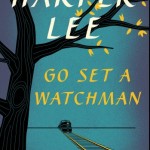 Okay, since everyone else is commenting on the “new” Harper Lee book, Go Set a Watchman, I thought I’d add a few cents. Well, I’ll really direct you to a great editorial carried in the Star Tribune and written by Howell Raines. http://www.startribune.com/go-set-a-watchman-on-further-reflection/317644551/
Okay, since everyone else is commenting on the “new” Harper Lee book, Go Set a Watchman, I thought I’d add a few cents. Well, I’ll really direct you to a great editorial carried in the Star Tribune and written by Howell Raines. http://www.startribune.com/go-set-a-watchman-on-further-reflection/317644551/
Howell Raines was the former managing editor at the New York Times and has written such heavy tomes as, Fishing Through the Midlife Crisis. Since I’m a fly fisher, I read his book years ago, before I reached middle age, and was, therefore, fully prepared when it hit. His solution to a crises was to go fishing—not bad advice for many reasons.
Anyway, he also qualifies, more importantly, as the reviewer of Go Set a Watchman because Raines is from Alabama. He coined the term, “red-neck Riviera” for the Gulf coast of Florida, Alabama, and Mississippi. He also is a self-proclaimed red-neck—who has changed and become a progressive. While not rejecting his history in the south, he apologizes for some of it, has moved on from other parts of it, and is proud to have done so.
He’s qualified to review Harper Lee’s new book since it takes place in time after her famous, To Kill a Mockingbird. One of the most startling  things about the new book, Go Set a Watchman, is the evolution of pure, honest, and unbiased Atticus Finch. He’s now moved into the 1950’s and is able to give the exact, racist speeches that I heard in the 60’s on TV.
things about the new book, Go Set a Watchman, is the evolution of pure, honest, and unbiased Atticus Finch. He’s now moved into the 1950’s and is able to give the exact, racist speeches that I heard in the 60’s on TV.
Howell Raines says this is just Harper Lee reflecting on the dismal course of race relations in the south. She’s recording them in a more brutal and realistic manner in the new book.
I confess that I haven’t read the new book yet. Will I? I don’t know. There’s part of me that has heard so much of the problems from the south regarding racism that I’m tired of hearing it. It’s like reading about the Holocaust . . .again. I know what happened, I think, and don’t need to be reminded for the four hundredth time. Also, what made To Kill a Mockingbird so good was the innocence of the story. I know it couldn’t be all that good, in reality, but it sure made for a great book! In my experience, sequels are usually a disappointment, anyway.
Also, I’ll miss the viewpoint of the main character. In Go Set a Watchman, Scout is an adult and has an adult perception of events in her hometown. Why is it that so many great, great stories are told from the viewpoint of a child or someone child-like. Think about Huckleberry Finn or The Old Man and the Sea. (The hero is a poor, uneducated fisherman who is child-like)
If any of you read it, please let me know what you think of Go Set a Watchman.






